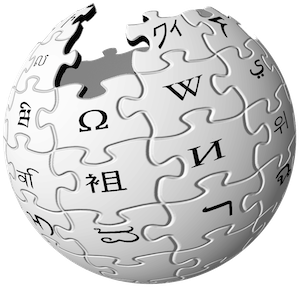 On the list of this round’s winners of the Knight News Challenge, there is no bigger name than Wikipedia. With Knight’s $600,000 grant, the Wikimedia Foundation plans to increase the free encyclopedia’s reach on mobile, developing new software that will allow users to better access the site on feature phones through Wikipedia Zero.
On the list of this round’s winners of the Knight News Challenge, there is no bigger name than Wikipedia. With Knight’s $600,000 grant, the Wikimedia Foundation plans to increase the free encyclopedia’s reach on mobile, developing new software that will allow users to better access the site on feature phones through Wikipedia Zero.
Wikipedia Zero was designed specifically to give access to the site to people in developing countries with low quality networks or high data costs. Using funding from the News Challenge, Wikipedia will aim to improve the user experience on feature phones, increase the number of languages available on the mobile site, and provide new ways to access the site via SMS.
In most Western countries, Wikipedia is usually a few clicks or taps away, whether on a computer or a smartphone. That’s not the case elsewhere. “There’s still a lot of people with old Nokia phones,” said Kul Wadhwa, head of mobile and business development for the Wikimedia Foundation. “A large part of the world still uses that. We want to make sure we support everybody.”
Wikipedia Zero is like normal Wikipedia, just stripped down to its essential parts. It comes in two flavors: a mobile-friendly site and a text-only site. But beyond making these barebones versions of Wikipedia, Wikimedia partners with telecommunications companies that agree to provide access to their customers free of charge. So far Wikipedia Zero is available through mobile providers in countries like Kenya, Uganda, Tunisia, Thailand, and Malaysia. (It comes after Facebook found significant success in poorer countries with the similar Facebook Zero, which launched in 2010.) Wadhwa told me mobile access to Wikipedia grew 40 percent year-over year in 2012, while non-English mobile usage jumped 66 percent.
Making Wikipedia Zero work comes down to two big issues — cost and access, Wadhwa said. Cutting deals with mobile providers is one way of addressing those problems. Creating more efficient software for feature phones is another, he said.
In order for the program to expand, they’ll need to continue usability testing on different types of feature phones, as well as adding new functionality, such as accessing the site through SMS. They also need to pursue more research on how people use Wikipedia in different counties and what their needs are, he said. One problem is that no two communities or mobile users are alike. Because phone usage and network strength varies so much, Wadhwa said it’s been difficult to develop a standard software for feature phones.
The next step after making Wikipedia readable across multiple phones and languages, is allowing users to edit the site. Given the limitations on feature phones, that could present problems. “Editing an encyclopedia on a phone is not entirely practical, but there are ways to contribute,” he said.
Like many News Challenge winners, Wikipedia will be releasing their work as open source once it’s complete. Given that Wikipedia is primarily built on open source software, Wadhwa said it’s fitting they’ll be able to give back to the developer community with their project. With a sizable global market for feature phones, Wadhwa expects their software could find plenty of uses. “Hopefully it’s not just Wikipedia people access on their phone. If they can use the same codebase, that can work for others.”